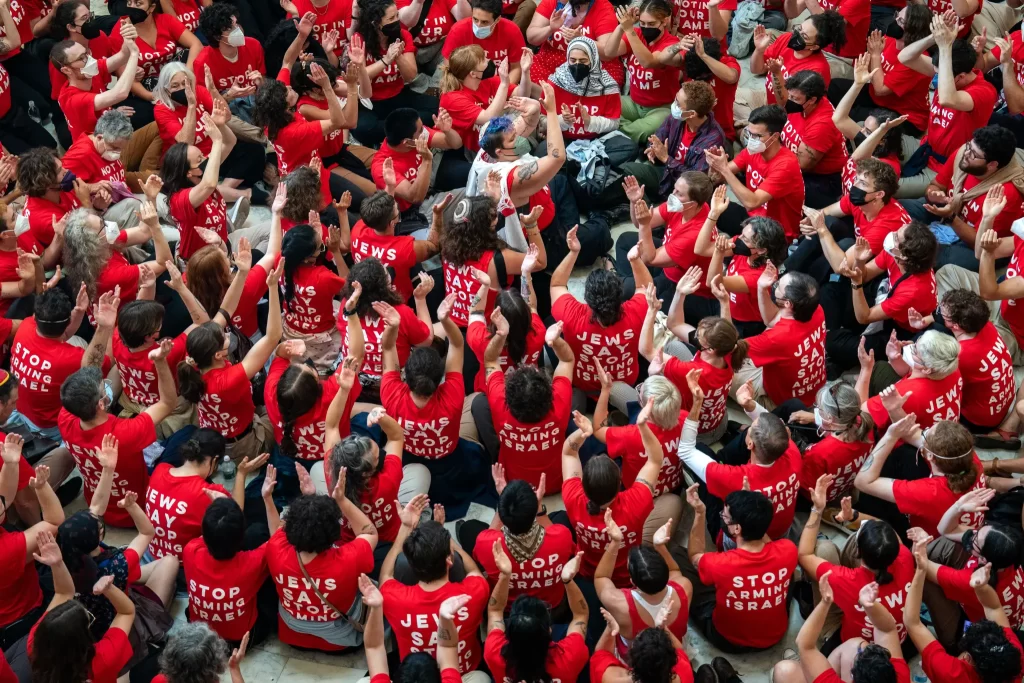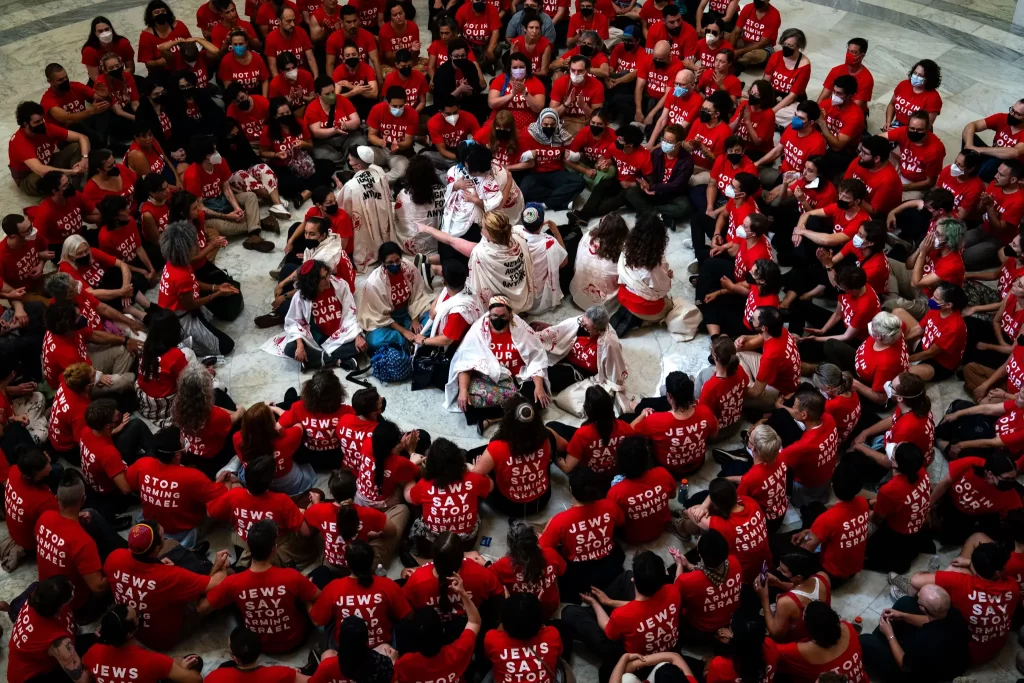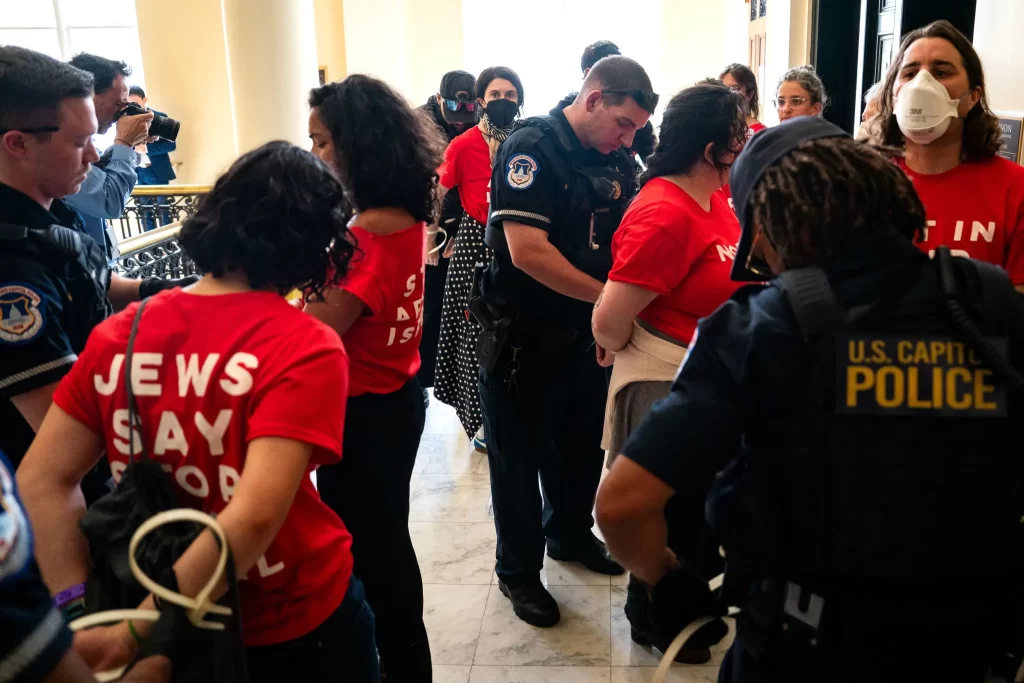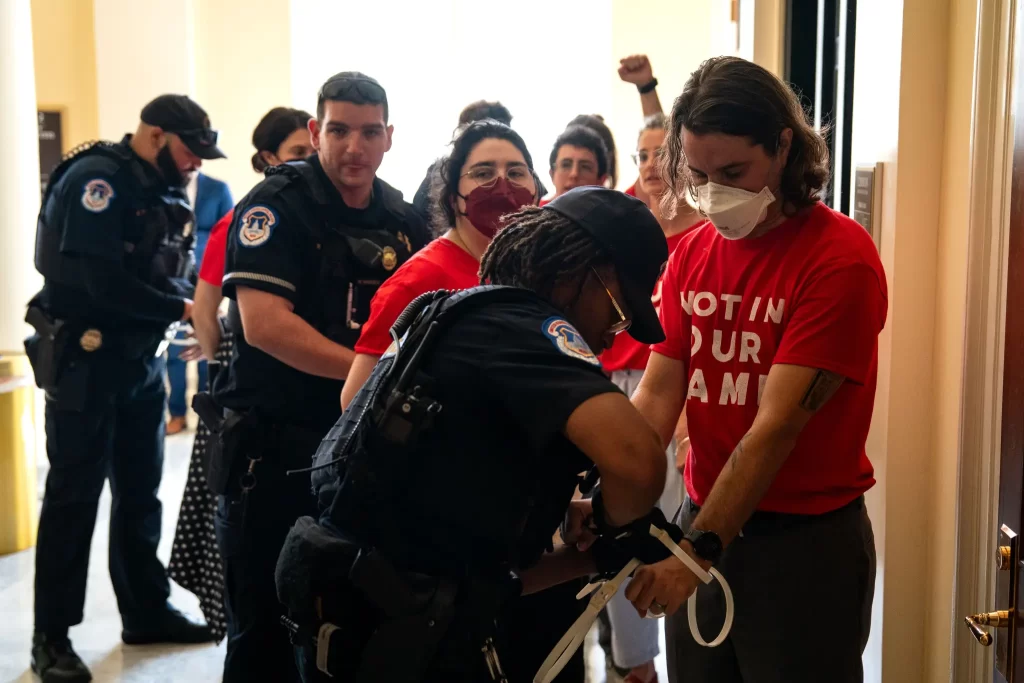Dozens of anti-Israel protesters were arrested Tuesday after invading the Cannon Building rotunda on Capitol Hill, just one day before Israeli Prime Minister Benjamin Netanyahu’s scheduled address to Congress. The US Capitol Police reported making arrests approximately 30 minutes into the illegal occupation after issuing warnings to the demonstrators.

The protest, organized by groups including Jewish Voice for Peace, saw hundreds of demonstrators sitting in a circle in the rotunda, chanting and holding signs. Video footage shows police officers confiscating signs and zip-tying protesters’ arms before leading them away.
The office of Michigan Democratic Rep. Dan Kildee reported that some protesters “violently” beat on office doors and attempted to force entry, prompting calls to authorities. The incident led to several arrests by US Capitol Police and the Sergeant at Arms.

Protesters primarily directed their criticism at the Biden administration, calling for an end to military aid to Israel. Jane Hirschmann, a New York native and daughter of Holocaust survivors, stated, “We’re not focusing on Netanyahu. He’s just a symptom. But how can (Biden) be calling for a cease-fire when he’s sending them bombs and planes?”

Netanyahu’s visit to the United States has sparked controversy, with several progressive lawmakers announcing they will not attend his congressional address. The Israeli Prime Minister is also scheduled to meet with President Biden, Vice President Kamala Harris, and former president Donald Trump during his trip.

The protests come amid ongoing criticism of Netanyahu’s leadership following the October 7 Hamas attack on Israel and the subsequent military campaign in Gaza. Separately, families of American hostages held in Gaza have appealed to lawmakers to press Netanyahu on prioritizing hostage releases.
As tensions continue to rise, the incident at the Capitol underscores the deep divisions surrounding US-Israel relations and the ongoing conflict in Gaza. Netanyahu’s upcoming address and meetings with US officials are likely to further fuel debates on American foreign policy in the Middle East.
Credit: nypost.com



